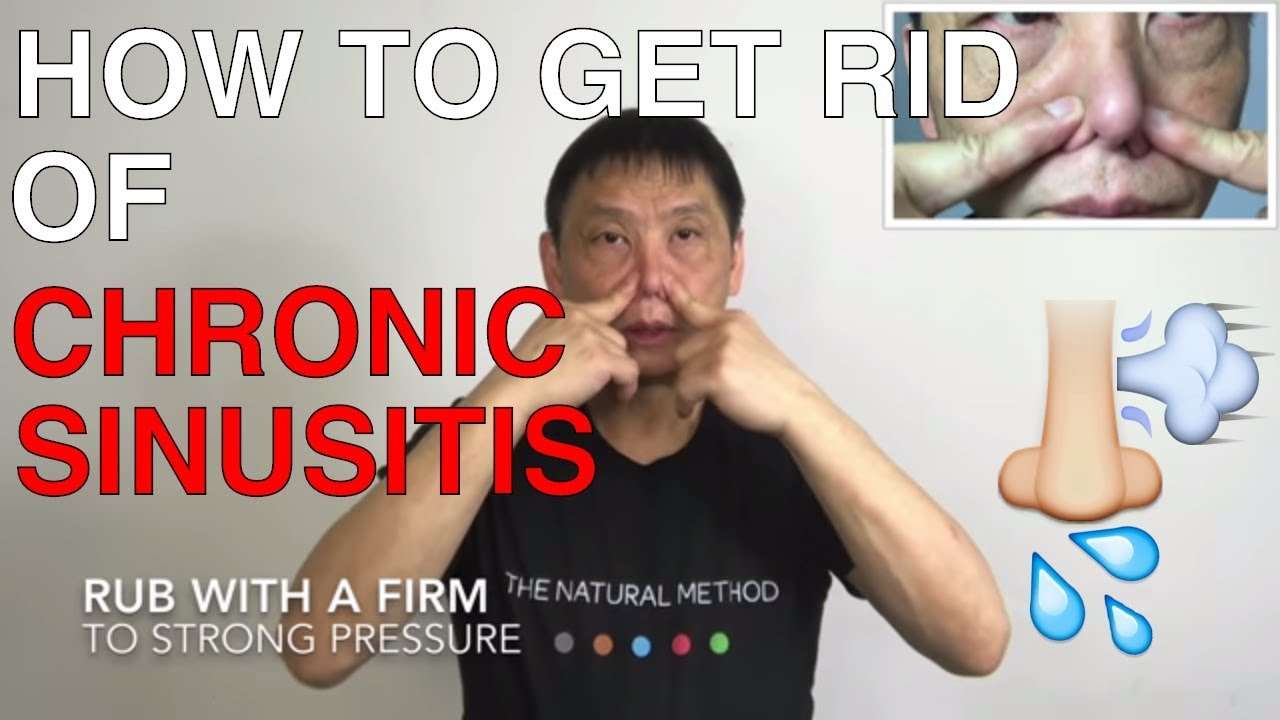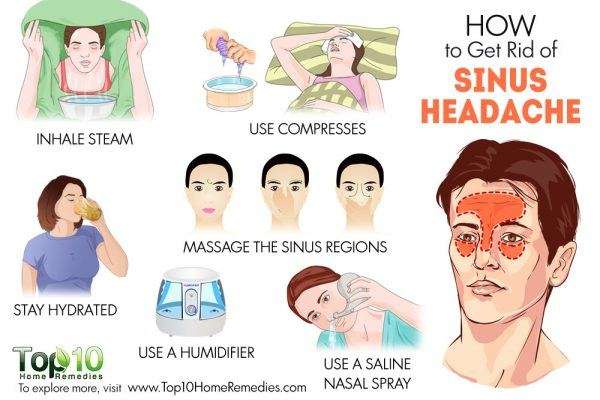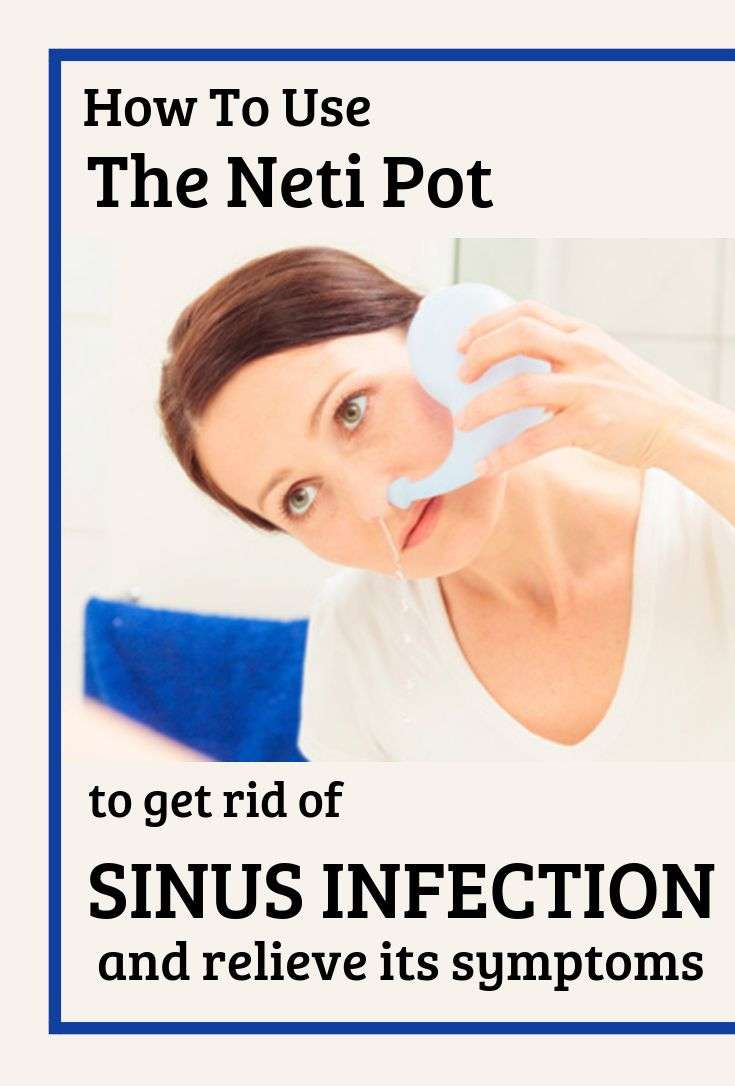Managing Your Chronic Sinusitis Symptoms
If you have chronic sinusitis, your doctor may ask you to see an allergist, an ENT, or both.
They can help you get started with treatment, but there is a lot you can do to manage sinus problems on your own:
- Drink plenty of fluids to keep your mucus thin and flowing
- Use steam or hot compresses to loosen up thick mucus secretions
- Keep you environment moist by using a clean humidifier
- Use over-the-counter saline nasal sprays or irrigations to open nasal and sinus passages
- Avoid overuse of over-the-counter decongestant sprays that can cause rebound congestion
Remember that sinusitis symptoms could be due to a sinus infection, but they also might be the result of an allergy or fungus.
Your doctor can help you find out the true cause and get you to the right specialist for treatment.
What Is A Sinus Infection
The sinuses, or sinus cavities, are hollow spaces that air flows through within the bones surrounding the nose. A sinus infection or sinusitis occurs when your nasal cavities become swollen and inflamed. Normally, your sinuses are filled with air. When sinuses become blocked and filled with fluid, germs can grow and cause an infection.
How long do sinus infections last? Well, that depends on what type of sinus infection you have. Acute sinusitis can last over two weeks even with appropriate treatment. If your sinus infection lasts longer than 10 to 14 days, then youre more likely to have bacterial sinusitis. Chronic sinusitis lasts much longer at least 12 weeks! Chronic sinusitis with polyps is an inflammation of the sinuses that lasts 12 weeks or longer and is associated with having nasal polyps. Other forms of chronic sinusitis are associated with allergies or a deviated septum and also last 12 weeks or longer.
How can you tell what type of sinus infection you have? Your doctor wont be able to tell you if your sinus infection is bacterial or viral based on symptoms or an exam alone. The best way to tell the root of a sinus infection is symptom duration. If its a viral sinus infection, it should start to improve after five to seven days. On the other hand, a bacterial infection often lasts seven to 10 days or even longer and the infection can get worse after seven days.
- Fever
- Earaches
What Is The Fastest Way To Get Rid Of Sinusitis
When you have a sinus infection, you often have to go through your day in pain and in a fog. Sinusitis, or infection of the sinuses, is incredibly common, but many people suffer through it rather than get it treated. At Asthma Allergy Centre in Tigard, McMinnville, or Beaver, OR, we use a variety of sinus management treatments to reduce the inflammation and immune response that are likely behind your sinus problems. Check out on how to get rid of sinusitis.
Read Also: How To Cure A Sinus Infection Naturally
Treatment For Sinus Infection
Whether you have an acute sinus infection or a chronic infection, a number of treatment options can relieve your discomfort. If youre in the early stage of an acute sinus infection, it may be appropriate to start at-home treatments while you monitor your symptoms. If your sinusitis worsens, youll need to call your doctor for medication and further care. Even if youre receiving treatment from your doctor, at-home care can help ease your symptoms.
Lingering Sinus Infection Or Chronic Runny Nose

A lingering sinus infection is different from a chronic runny nose. Chronic runny nose typically comes from allergies or other irritants in the air. However, this can turn into an infection over time.
When the sinuses become infected, the allergies, irritants, or viral cold have caused swelling in the nose thats blocked the drainage pathways. Consequently, fluid and mucous accumulate in the sinuses, where it has become infected with bacteria.
If youve been sick more than 10 days and begin to experience other symptoms like facial pressure, headache, and fever, youre dealing with more than a chronic runny nose.
Read Also: Drugs For Sinus Infection Prescription
Can Sinusitis Cause Death
Chronic sinusitis can spread to the eyes, blood, and brain, and, in rare circumstances, cause death. For that reason, its important to take instances of sinusitis that wont go away very seriously. If you have a persistent sinus infection, make sure you follow your doctors instructions regarding your antibiotics and of course, get plenty of rest.
Drink Plenty Of Fluids
Staying hydrated will help thin the mucus and reduce the feeling of blockage. Water is the best option, but non-caffeinated tea, sports drinks containing electrolytes, and clear broths are also good options.
- Men should drink at least 13 cups of fluids per day. Women should drink at least 9 cups of fluids per day. If youre sick, you may need even more.
- Avoid alcohol. It can actually make the swelling in your sinuses worse. Caffeine may dehydrate you, which could make the mucus thicker.
Read Also: Things That Help With Sinus Pressure
What To Do For Sinus Pressure And Pain At Home
Here are the top 10 at-hometreatments to help ease your sinus pain and inflammation to get rid of your sinus infection faster.
Check If You Have Sinusitis
Sinusitis is common after a cold or flu.
Symptoms of sinusitis include:
- pain, swelling and tenderness around your cheeks, eyes or forehead
- a blocked nose
- a reduced sense of smell
- green or yellow mucus from your nose
- a sinus headache
- toothache
- bad breath
Signs of sinusitis in young children may also include irritability, difficulty feeding, and breathing through their mouth.
The sinuses are small, empty spaces behind your cheekbones and forehead that connect to the inside of the nose.
Sinusitis causes the lining of the sinuses to swell up.
This stops mucus draining into your nose and throat properly, making you feel blocked up.
Read Also: How To Get Rid Of Sinus Pressure Migraine
How To Cure Chronic Sinusitis And Sinus Headaches Permanently
Chronic sinusitis and sinus headaches can have a significant impact on your health and wellbeing. It can be difficult to get on with your usual routine when youre in pain or suffering from serious congestion. You can also feel very upset and hopeless when it seems that the problem keeps coming back. What can you do to cure sinus problems permanently?
How An Ent Treats A Sinus Infection
If you have a lingering sinus infection after antibiotics, an ENT doctor often elects to be more aggressive in treatment than a primary care physician. They may prescribe longer courses of antibiotics, stronger medications, or recommend a procedure to open the sinuses.
If you have persistent sinus problems, the sinuses must first be unblocked. Sometimes, thats done through a simple balloon sinuplasty and irrigation. Other times, unblocking the sinuses requires a more aggressive procedure like endoscopic sinus surgery. We opt for this procedure when the sinuses become so blocked, tissue and bone need to be removed to create a wider opening.
If youre dealing with a lingering sinus infection, dont let it progress to a more serious issue. Call your ENT so they can discover whats at the root of your problem and find a treatment to bring you relief.
Read Also: Ent Doctor For Sinus Problems
Ways To Recognize Serious Signs Of Sinus Infections
#1: Duration
The length of the infection is an important determinant of the seriousness of the infection.
I usually consider most infections less than 3 weeks to be viral or inflammation related to congestion. At this point, the best treatment is usually medications that decrease the congestion and inflammation. This in turn will alleviate the symptoms and ultimately cure the illness.
When the illness continues beyond 3 weeks, bacterial infection can begin to develop. Though antibiotics can be considered at this point, other treatments may still be the best answer if they have not yet been given a try.
#2: Mucous Color
I will dispel a myth right here and now. Yellowish/greenish mucous does not necessarily mean the infection is bacterial.
Viruses can cause the same color mucous. The reason for the mucous is generally not the actual bacteria or virus, but the bodys immune response to the intruder.
So dont worry just because you see a colored mucous when you blow your nose. This will also improve as the infection abates.
#3: Sinus Pain
Sinus pain can occur anytime throughout a sinus infection. This is normal and means there is inflammation in the sinuses, as we discussed previously.
However, severe pain, redness over the skin, hardened skin over the sinuses, or even a severe headache are not generally normal and can indicate a bacterial infection.
#4: Fever
A fever can be caused by both viruses and bacteria. So how do you differentiate between the two?
Treatment For Sinusitis From A Gp

If you have sinusitis, a GP may be able to recommend other medicines to help with your symptoms, such as:
- steroid nasal sprays or drops â to reduce the swelling in your sinuses
- antihistamines â if an allergy is causing your symptoms
- antibiotics â if a bacterial infection is causing your symptoms and you’re very unwell or at risk of complications
You might need to take steroid nasal sprays or drops for a few months. They sometimes cause irritation, sore throats or nosebleeds.
A GP may refer you to an ear, nose and throat specialist if, for example, you:
- still have sinusitis after 3 months of treatment
- keep getting sinusitis
- only have symptoms on 1 side of your face
They may also recommend surgery in some cases.
You May Like: Aleve D Sinus And Headache Discontinued
What Are The Signs And Symptoms Of Chronic Sinus Infection
Chronic sinusitis emerges more insidiously than acute sinusitis. At times, however, the symptoms start suddenly and may resemble that of the common cold or acute sinusitis that just wont go away.
Chronic sinusitis is most likely if you have two or more of the following symptoms:
- Nasal congestion or stuffy nose
- Mucus and pus-like discharge
- Postnasal drip
- Facial pain, pressure around your eyes and nose, or fullness
- Partial or complete loss of your sense of smell
Chronic cough, sore throat, and fatigue may also be seen in a chronic sinus infection. That said, these symptoms are not required for the diagnosis of chronic rhinosinusitis.
Yoga Can Help Drain Mucus From Sinus Passageways
If you are in the midst of a sinus infection, a supported yoga pose where your head is elevated will help you feel better without putting too much pressure on your sinuses, says Leslie Kazadi, a certified yoga therapist who teaches around Los Angeles and online at YogisAnonymous.com.
One pose Kazadi suggests is Supported Reclined Cobblers Pose.
How to Try Supported Reclined Cobblers Yoga Pose
Recommended Reading: Medicine For Sinus Infection Otc
When To Seek Medical Care
See a doctor if you have:
- Severe symptoms, such as severe headache or facial pain.
- Symptoms that get worse after initially improving.
- Symptoms lasting more than 10 days without improvement.
- Fever longer than 3-4 days.
You should also seek medical care if you have had multiple sinus infections in the past year.
This list is not all-inclusive. Please see a doctor for any symptom that is severe or concerning.
Other conditions can cause symptoms similar to a sinus infection, including:
- Seasonal allergies
- Colds
Your Sinus Infection Natural Treatment
Obviously, you shouldnt use ALL of these remedies TOGETHER. Just choose a few of them, the most available to you, and youre set.
A few combinations you can try are:
Read Also: What Is Used To Treat Sinus Infection
How Is Chronic Sinusitis Treated
My primary treatment of CS includes a dietary change to eliminate sugar for at least one month. Some require a full candida diet in order to reduce their production of yeast. I also check for food sensitivities and customize the prescribed diet to suit each individuals needs. Yeast overgrowth is treated with botanicals and nutrients that kill excessive amounts of yeast and open up biofilms. Yeast organisms protect themselves from being destroyed by hiding inside these biofilmsa protective shield created by the organisms themselves.
Biofilms are among the most interesting fields of research for the eradication of chronic diseases caused by viral, bacterial and yeast organisms. Many see biofilms as the future of medicine. Fungal drugs, including Nystatin and Diflucan, used to treat Candida, found that they were initially effective until the biofilm developed. At this point, they became less effective, and after 72 hours of the biofilm development, the candida cells were found to be highly resistant! This research indicates that drug resistance develops over time due to the biofilm development. Now researchers are seeing more common anti-fungal drugs such as amphotericin B and fluconazole developing resistance as well.2
I treat patients from all walks of life, from infants to elders. You can click here to find out a little more about me. I also offer free meet-and-greets, which can be booked online.
Chronic Sinusitis And Sinus Headaches
Sinusitis happens when the sinuses or cavities around the nasal passages become swollen. The sinuses can become inflamed if you have an infection or because of an allergic reaction. The symptoms usually go away within a couple of weeks, but some people experience longer or recurring sinus infections. If you have chronic sinusitis, you could be dealing with symptoms such as nasal discharge, congestion, and pain or sinus headaches for many months.
Recommended Reading: Where Does Sinus Cancer Spread To
How Long Do Sinus Infections Last
Many variables affect the duration of sinus infections. Most last more than 10 days, but when a sinus infection lasts more than twelve weeks, it is considered chronic sinusitis.
If after 10 days, your symptoms have not improved, see your primary care doctor. You may have an acute sinus infection.If it lasts four weeks, you potentially have a sub-acute sinus infection that needs more aggressive treatment.
If symptoms last over 12 weeks, youre likely dealing with a chronic infection. After such prolonged symptoms, it can be difficult to distinguish sinus headaches from migraine headaches from severe allergies. After 12 weeks, diagnosing and treating the issue requires the medical expertise of an ENT.
What Can I Do To Find Relief From A Sinus Infection

- Place a warm compress over your face to help relieve pressure.
- Breathe in steam by placing a towel over your head and leaning over a bowl or sink full of hot water to allow the steam to relieve congestion. WARNING: Make sure that the water is not too hot because steam can cause burns.
- Rinse the sinuses. Dr. Takashima recommends using the squeeze bottle over the neti pot for effective nasal irrigation.
- Keep the nasal passages moist by using a saline nasal spray.
- Rest.
- Use a humidifier to add moisture to the air.
Also Check: Walgreens Sinus Congestion And Pain
So How Do I Address My Sinusitis
As any physician is taught in medical school, the key to eliminating a localized infection is not antibiotics, but rather to drain it or wash it away. The billions of bacteria you wash down the sink save your immune system a lot of work.